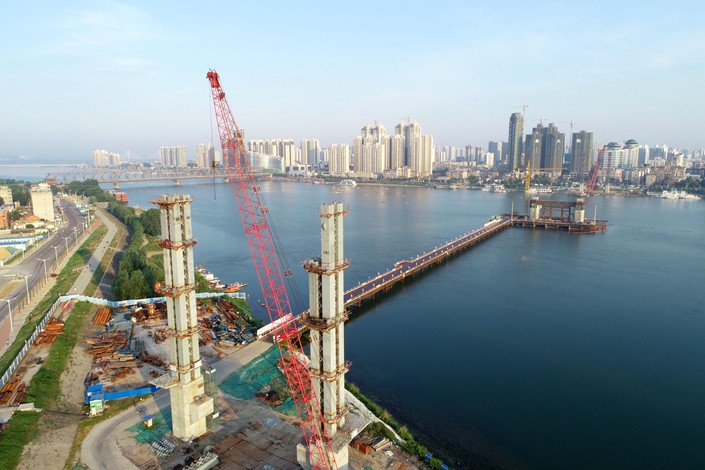China Makes Regional Leaders Accountable for Local Debt

China’s central government issued new rules to hold local party leaders and officials accountable for hidden debt amassed by local governments bypassing regulatory restrictions.
Despite Beijing’s long-running efforts to tighten control of local government borrowing, many cash-strapped local governments have continued to build up debt in illicit and opaque ways.
In some provinces, the scale of invisible debt was many times higher than liabilities on the books, documents released by local governments showed.
During the last three months of 2017, six local governments were found to have taken on a combined 15.4 billion yuan ($2.45 billion) of debt in violation of various regulations that control local-authority borrowing, according to a report released in April by the National Audit Office, which tracks the implementation and enforcement of major government policies.
For example, one local government financing vehicle (LGFV) in Shaoyang in the central province of Hunan, used public assets, such as roads and drainage systems, as collateral to borrow more than 7.3 billion yuan from banks and other financial institutions, even though using state assets as collateral is prohibited under Ministry of Finance regulations.
President Xi Jinping has said that local government debt, especially hidden debt, is one of the main financial risks to be addressed. In July 2017, at the National Financial Work Conference, a key meeting convened every five years, Xi vowed to hold officials accountable for defying the rules. The new rules specify the accountability of officials responsible for off-balance sheet borrowings.
The accountability rules cover hidden debt in the form of direct borrowing through LGFVs, unregulated corporate loans guaranteed by local governments and disguised financing through public-private partnerships (PPPs).
Officials accountable for any violations include local party leaders and government officials as well as executives of state-owned enterprises, financial institutions and intermediaries.
Since the beginning of 2017, the central government has stepped up scrutiny and punishment of debt violations by local governments. The Qianjiang District government of Chongqing municipality became the first local government held accountable for debt violations in March 2017. The head of the local finance bureau was fired for illegally guaranteeing debt.
Since then, officials at 12 provincial and municipal governments and executives of related state-owned enterprises had been held accountable through the end of July.
In some cases, accounting and law firms involved in illicit debt arrangements were also held accountable.
Some local authorities have recently set a timetable to significantly reduce off-balance sheet debt within five to 10 years.
A researcher close to policymakers told Caixin that the new accountability rules should play a significant role in restricting the behavior of local governments and financial institutions. He said local governments’ attitudes toward investment and debt issuance have changed since the draft of the accountability rules was circulated earlier this year.
Contact reporter Yang Ge (geyang@caixin.com)

- 1Cover Story: China Carves Out a Narrow Path for Offshore Asset Tokenization
- 2Drownings Shake Chinese Enthusiasm for Travel to Russia
- 3Over Half of China’s Provinces Cut Revenue Targets
- 4Li Ka-Shing’s Port Empire Hit by Forced Takeover Amid Panama Legal Dispute
- 5In Depth: China’s Mutual Fund Industry Faces Overhaul After a Banner 2025
- 1Power To The People: Pintec Serves A Booming Consumer Class
- 2Largest hotel group in Europe accepts UnionPay
- 3UnionPay mobile QuickPass debuts in Hong Kong
- 4UnionPay International launches premium catering privilege U Dining Collection
- 5UnionPay International’s U Plan has covered over 1600 stores overseas






